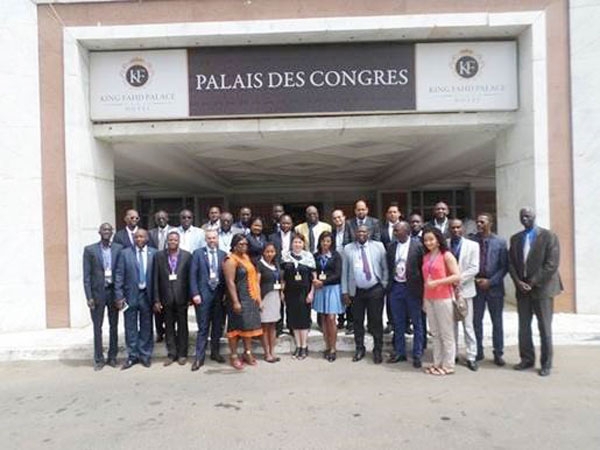A workshop was held in Dakar, Senegal from May 17 to 18, 2017 to prepare for the ISO standard for non-sewer sanitation systems. The meeting brought together several participants from a dozen francophone African countries and international experts. The objective of this workshop was to initiate discussions on the ISO/PC 305 standard on environmental and public health issues.
More than 80 percent of African households have toilets that are not connected to sewage systems and therefore involve on-site sanitation services. This is an important part of the continent’s population for which it is necessary to define norms and standards in order to guarantee the sustainable management of on-site sanitation services. The new ISO/PC 305 international standard, which is the subject of the workshop, will certainly facilitate the manufacture, marketing and mass deployment of sustainable non-sewer sanitary systems on the market.
The meeting, financed by the Bill & Melinda Gates Foundation, was held on the initiative of the Standardization and Francophonie Network (RNF), the Senegalese Association for Standardization (ASN) and the American National Standard Institute (ANSI). Participants from 11 francophone countries, including Gabon, the Democratic Republic of the Congo, Madagascar, Senegal, Cameroon, Benin, Burkina Faso, Mauritania, Haiti, Morocco and France attended the sessions facilitated by experts from Canada, Switzerland and the United States. In addition, the workshop discussed the content of the standard being drafted at ISO while identifying the issues for each country and preparing for their participation in the upcoming standardization committee negotiations to be held in Durban, South Africa in June 2017. Dr. Siméon Kenfack, the Programs Director, and Dr. Mbaye Mbéguéré, the Coordinator of the RASOP-Africa Program and who also participated in the workshop in Senegal, used this opportunity to introduce the African Water Association (AfWA) and the RASOP Program. RASOP, a three-year program funded by the Gates Foundation and implemented in five African capital cities by AfWA, focuses on reinforcing the capacities of African sanitation operators for on-site sanitation and fecal sludge management through partnerships.
The meeting also provided a list of challenges and opportunities to facilitate the participation of francophone countries in international standardization negotiations. The conclusions of this working session will be analyzed by the RNF and ISO, who will attempt to establish a roadmap by pooling their resources. It should be noted that AfWA is considering obtaining Category A member status in the International Standardization Organization. In April 2017, a national workshop on standardization in the Infrastructure, Energy and Water Sectors was held at the Andrew Young Center in Abidjan Plateau.

 English
English  Français
Français 
